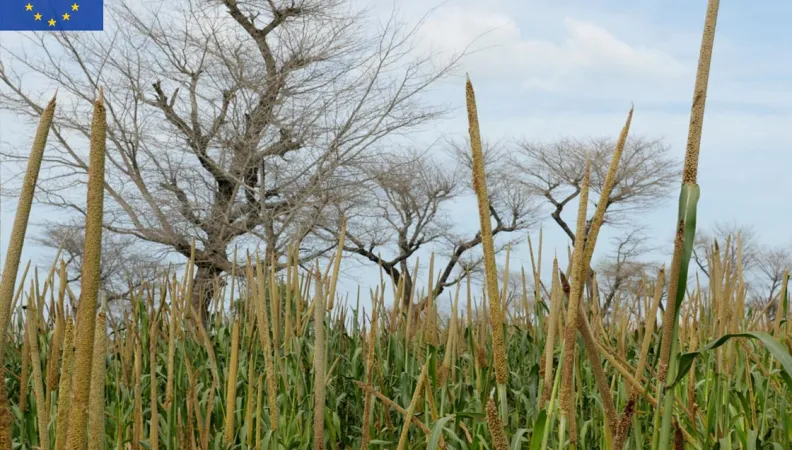Share the page
Agroecology public policies and income inequalities in rural regions in Senegal

-
Project start date
-
2018Status
Completed
-
Project end date
-
2020
-
Project duration
-
1 year and 7 months
-
AFD financing amount
-
134054
-
Country and region
-
Location
-
Groundnut Basin area
-
Partners
-
Research program
The goal of agroecological intensification is to increase productivity while avoiding the adverse environmental effects of mechanized conventional agriculture that uses chemical inputs. In order to carry out this agroecological transition, national incentives can be set up. This project seeks to evaluate the impact of these incentives on income inequalities in rural areas and to compare them with other types of public policies (subsidies for chemical fertilizers, for example).
Context
Reducing poverty and income inequalities has been one of the priorities of Senegalese governments since the end of the 1990s. While progress has been made, 23% of households surveyed in 2011 still considered themselves as very poor. To reduce these inequalities and promote growth that is beneficial to the poorest, it is crucial to develop the agricultural sector. There are various possible trajectories for doing so. One is intensification of agroecology, which seems to be good choice for this development, in particular for environmental reasons. For example, several projects have shown that agroecological practices enable productivity comparable to conventional agriculture while at the same time being much more friendly to the environment and the climate. However, there are have been few studies that have quantified the impact of these practices on farmer income and especially on income inequalities, despite the fact that this is a fundamental parameter for achieving the goals of eliminating severe poverty.
This project is part of the first phase of the Research Facility on Inequalities, coordinated by AFD and funded by the European Commission's Directorate-General for International Partnerships over the 2017-2020 period. The first phase of the Facility has led to the conduct of 22 research projects and the publication of around 100 research papers and policy briefs.
Goal
The objectives of this research project are to:
- quantify the current income inequalities in rural areas in Senegal;
- analyze what impact different types of public policies that promote agroecology would have on these inequalities.
It is therefore a question of determining the type of grant for Senegal’s agricultural sector that is most likely to reduce inequalities. Different types of inequalities are studied: by gender, within a single community, and between two communities located in different agroecological zones.
Method
This project uses a multidisciplinary approach which combines participatory workshops in rural areas and a stage of bio-economic modeling of outcomes during the workshops. To do so, outcomes, and models already used in international projects (e.g. AMMA-2050) are being expanded and improved. The analysis must also focus on a sector very largely neglected in the past: the combined systems of farming and or livestock raising. Two agroecological zones are being studied under two contrasting climates: one symbolizing the current climate and the other, defined by climatologists, representing the future climate. This will help assess the relevance of agroecology faced with climate change adaptation and to quantify its contribution to the resilience of vulnerable populations.
Results
You may find the research papers here (in French) :
- Inégalités de revenu en milieu rural dans le bassin arachidier du Sénégal
- Impact de différentes politiques publiques sur l'intensification agroécologique et les inégalités de revenu dans le bassin arachidier du Sénégal
You may find the policy briefs here:
